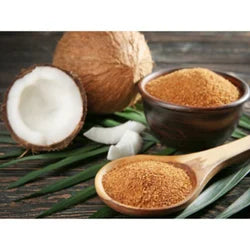Flax seeds have gained popularity as a superfood due to their impressive nutritional profile. They are packed with fiber, omega-3 fatty acids, and essential nutrients that can benefit overall health. But are flax seeds really good for you? Let’s explore their benefits, uses, and how you can incorporate them into your daily diet.
Nutritional Benefits of Flax Seeds
Flax seeds are rich in nutrients, making them a valuable addition to a healthy diet. Here’s what makes them special:
- High in Omega-3 Fatty Acids: Flax seeds contain alpha-linolenic acid (ALA), a plant-based omega-3 that supports heart health.
- Rich in Fiber: They help with digestion, regulate blood sugar, and promote gut health.
- Packed with Lignans: These compounds have antioxidant properties and may reduce the risk of certain cancers.
- Good Source of Protein: Flax seeds provide plant-based protein, making them ideal for vegetarians and vegans.
Health Benefits of Flax Seeds
1. Supports Heart Health
Flax seeds help lower bad cholesterol (LDL) while increasing good cholesterol (HDL). Also, their omega-3 content can reduce inflammation and lower blood pressure, promoting heart health.
2. Aids Digestion
The high fiber content in flax seeds supports digestive health by preventing constipation and promoting regular bowel movements. Flaxseed meal or flaxseed powder can be easily added to smoothies or baked goods for extra fiber.
3. Helps with Weight Management
Flax seeds are low in carbs but high in fiber and protein, keeping you full for longer. This helps control appetite and supports weight management.
4. Balances Hormones
Lignans in flax seeds have phytoestrogen properties, which may help balance hormone levels, especially in women experiencing menopause.
How to Use Flax Seeds in Your Diet
Flax seeds are versatile and can be consumed in various forms:
- Whole Flax Seeds: Add them to yogurt, oatmeal, or salads for a crunchy texture.
- Flaxseed Meal: Ideal for baking, smoothies, and soups.
- Flaxseed Powder: Easily mixed into drinks and recipes for added nutrition.
- Flaxseed Oil: Great for salad dressings and drizzling over cooked meals.
Best Practices for Consuming Flax Seeds
- Grind Before Use: Whole flax seeds can pass through the digestive system undigested, so it’s best to consume them as flaxseed meal or flaxseed powder.
- Drink Plenty of Water: Since flax seeds are high in fiber, staying hydrated helps prevent digestive discomfort.
- Store Properly: Keep flax seeds and flaxseed oil in a cool, dark place to maintain freshness.
Where to Buy High-Quality Flax Seeds
If you’re looking for high-quality raw flax seeds, check out our collection at Daily Farmer. We offer premium flax seeds that retain their nutritional benefits and freshness.
Conclusion
Flax seeds are a nutritious addition to any diet, offering numerous health benefits, from heart health to better digestion. Whether you choose whole flax seeds, flaxseed meal, flaxseed powder, or flaxseed oil, incorporating them into your daily routine can improve overall well-being. For more high-quality plant-based products, visit our Amazon Store.



